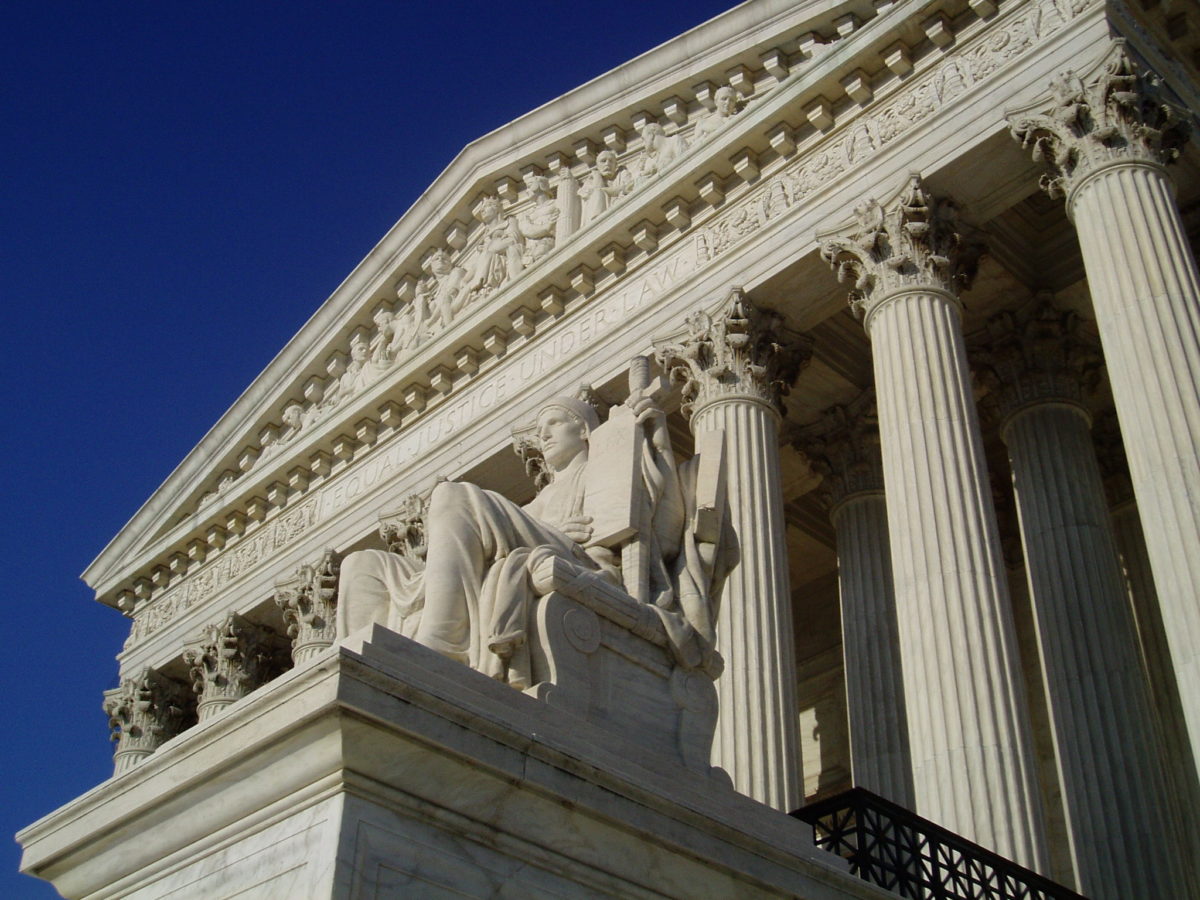Politics
Kavanaugh Cast Doubt On Supreme Court Watergate Tapes Ruling

Supreme Court of the United States | Circa September 2005 | By This image or media was taken or created by Matt H. Wade. To see his entire portfolio, click here. @thatmattwade This image is protected by copyright! If you would like to use it, please read this first. (Own work) [CC BY-SA 3.0 (https://creativecommons.org/licenses/by-sa/3.0)], via Wikimedia Commons
Judge Brett Kavanaugh said that the U.S. Supreme Court was wrong to compel President Richard Nixon to surrender the infamous Watergate tapes during a 1999 panel discussion.
Though he has since espoused other views about that ruling, Kavanaugh said in 1999 that the high court had no power to resolve the Nixon case, since it involved a dispute between two officers within the same branch of government. The event was recounted in the January/February edition of Washington Lawyer.
“Maybe Nixon was wrongly decided — heresy though it is to say so,” he said. “Nixon took away the power of the president to control information in the executive branch by holding that the courts had power and jurisdiction to order the president to disclose information in response to a subpoena sought by a subordinate executive branch official. That was a huge step with implications to this day that most people do not appreciate sufficiently.”
“Maybe the tension of the time led to an erroneous decision,” he added.
The Associated Press first reportedthe comments, which were included in a trove of documents Kavanaugh submitted to the Senate Committee on the Judiciary late Friday.
The case, U.S. v. Nixon, reached the Supreme Court in 1974, after the embattled president refused to comply with a subpoena for tapes of his conversations with several aides indicted in connection with the Watergate scandal. A unanimous Court ordered Nixon to surrender the recordings just three weeks after oral arguments.
The ruling effectively ended Nixon’s presidency. The release of the tapes proved devastating to his depleted political viability, and he resigned just two weeks later.
In other contexts, however, Kavanaugh has praised the Nixon decision as a victory for the rule of law. During a 2015 speechat Catholic University in Washington, the judge said the ruling protected the power and integrity of the courts.
“Some of the greatest moments in American judicial history have been when judges stood up to the other branches, were not cowed, and enforced the law,” he said, with specific reference to the Nixon decision.
Kavanaugh’s 1999 statements correspond with other positions he has taken respecting executive power. In a 2008 law review articlehe urged Congress to adopt legislation exempting sitting presidents from criminal investigation and prosecution, as such probes cripple executive branch operations at a basic level.
Similarly in one of his most interesting opinionsfor the U.S. Court of Appeals for the D.C. Circuit, Kavanaugh criticized a 1935 Supreme Court decision called Humphrey’s Executor v. U.S., which upheld a for-cause removal requirement when firing a federal agency director. Critics of the decision say it undermines presidential power, since it limits his ability to hire and fire personnel in the executive branch.
“Humphrey’s Executor thus approved the creation of ‘independent’ agencies — independent, that is, from presidential control and thus from democratic accountability,” Kavanaugh wrote.
The judge’s remarks about the Nixon case will also prove useful to Democrats, who may turn Kavanaugh’s confirmation hearing into a forum on special counsel Robert Mueller’s investigation. Senate Minority Leader Chuck Schumer demanded Friday that the judge recuse himself from all cases relating to the Russia investigation, after press accounts surfacedof a 2016 speech he made questioning the constitutionality of the old independent counsel law.
That statute established an independent investigator with a broad mandate to prosecute government corruption.
The judge’s confirmation hearings have not yet been scheduled.
Send tips to [email protected].
All content created by the Daily Caller News Foundation, an independent and nonpartisan newswire service, is available without charge to any legitimate news publisher that can provide a large audience. All republished articles must include our logo, our reporter’s byline and their DCNF affiliation. For any questions about our guidelines or partnering with us, please contact [email protected].

